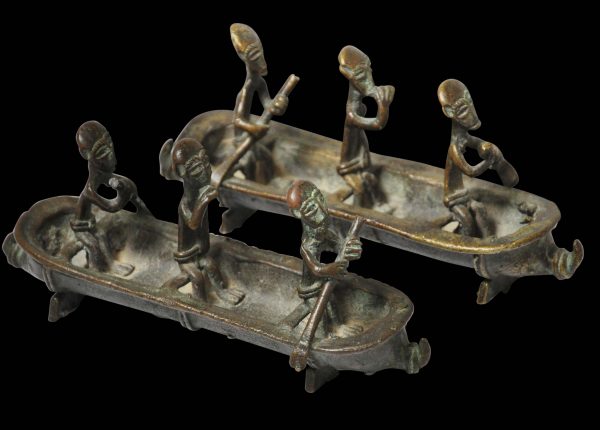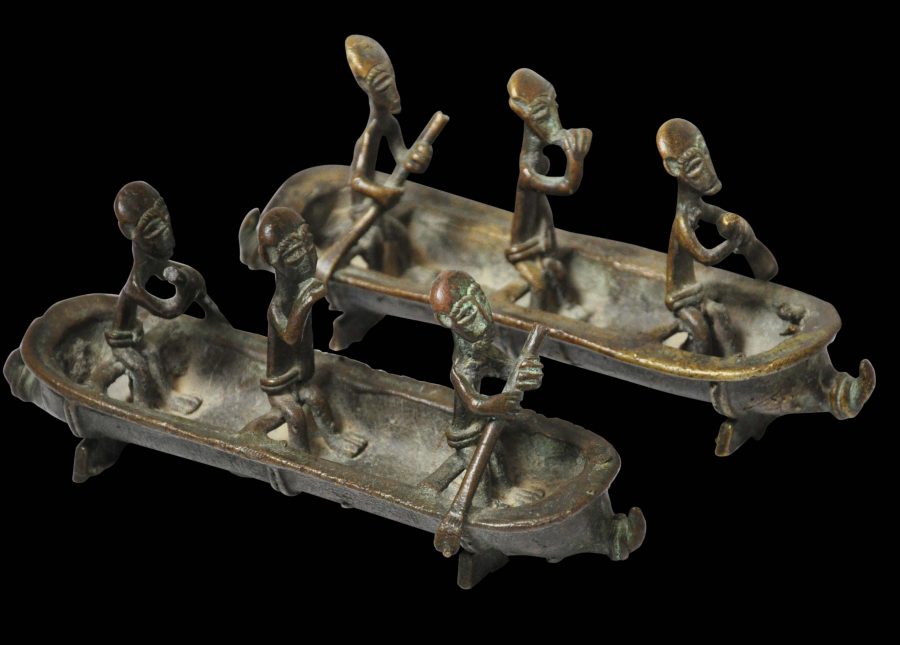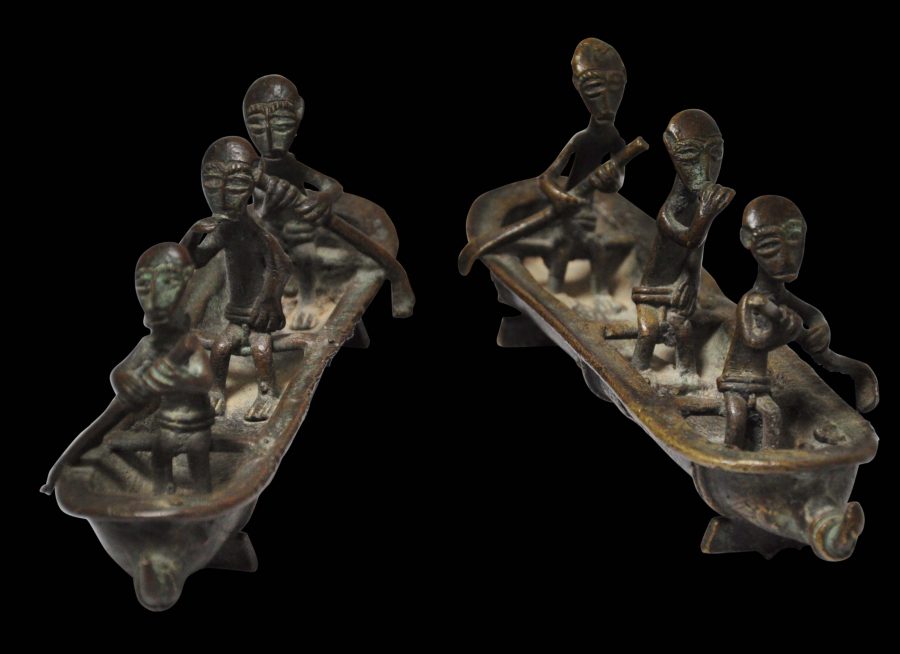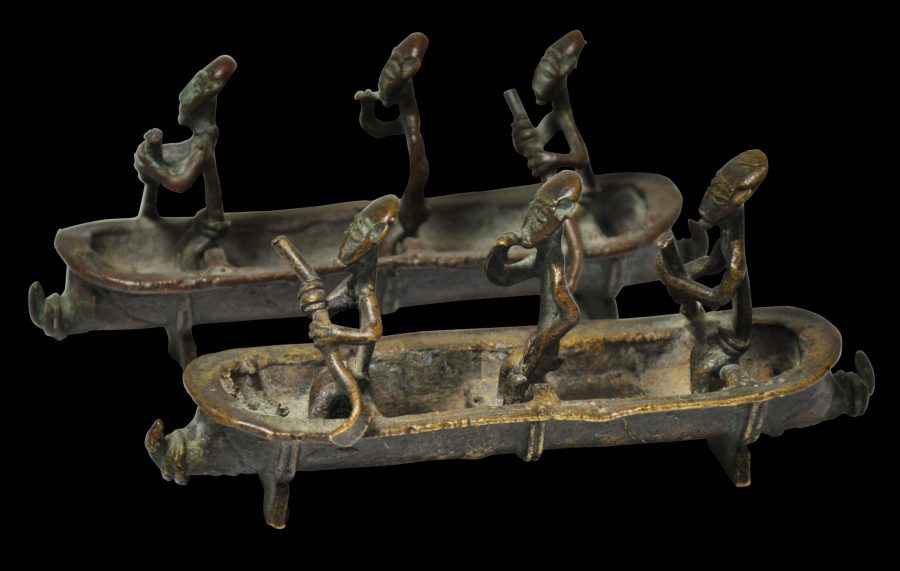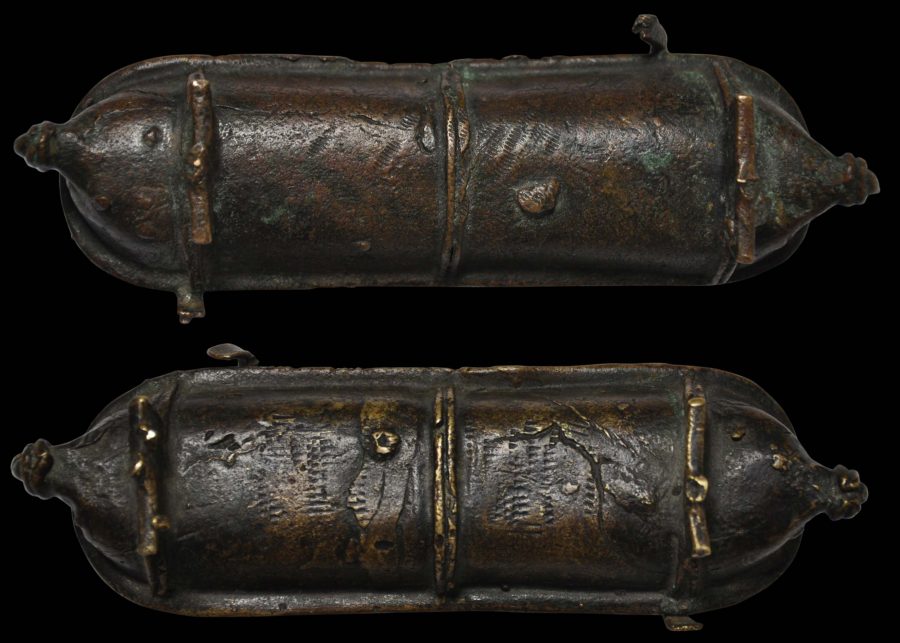This pair of brass models of canoes most probably were used as personal weights. They are unusually complex.
Each holds three seated men and has been cast using the lost wax method. The two are the mirror of the other – the front paddler of one paddles on his left; the front paddler of the other paddles on his right, and so on. Each weight rests on two feet.
Personal weights such as these were used in Ghana and elsewhere in West Africa. Principally, small weights were used to weigh gold dust which became the currency used to settle everyday transactions. Each party to any transaction would typically use their own weights – largely because one could trust one’s own weights in the absence of any government certified weighing system. The negotiating process not only would include the cost in gold dust of the items being transacted over but a comparison of weights, debate over the scales used, and the purity of the gold dust (gold often was adulterated with brass filings). Even transactions as rudimentary as buying vegetables in a street market necessitated this process.
Gold weights were cast in brass or bronze. They were used by the Akan who occupy a large part of West Africa including parts of Ghana and the Ivory Coast and include many sub-ethnic groups such as the Baule and the Asante (Ashanti). Gold became an important commodity which gave rise to Ghana’s old colonial name of the Gold Coast. The region was known as the Gulf of Guinea, and in England, a gold coin worth twenty-one shillings became known as a guinea (Phillips, 2010).
The two here have a dark chocolate brown patina.
References
Phillips, T., African Goldweights: Miniature Sculptures from Ghana 1400-1900, Edition Hansjorg Mayer, 2010.
Robbins, W.M. & N.I. Nooter, African Art in American Collections, Smithsonian Institution Press, 1989.


